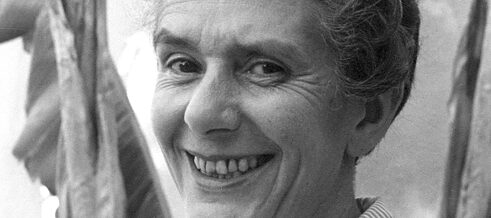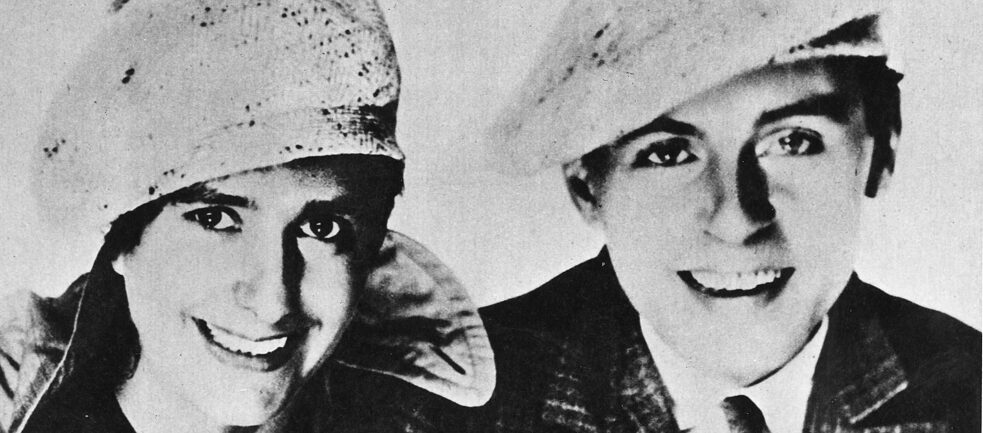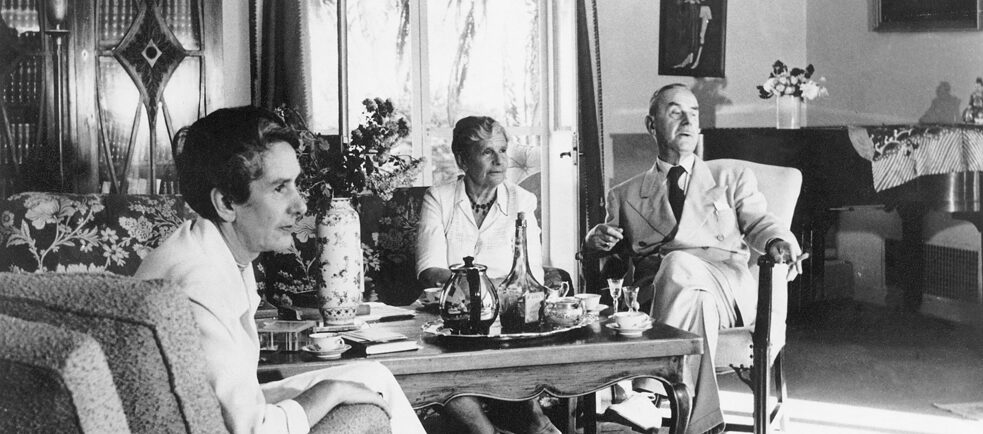Erika Mann
Unwavering belief in democracy and freedom

She was much more than just the daughter of a famous (artistic) family: Erika Mann worked as a war reporter, established a cabaret group, gave political speeches – and always stood up for freedom and democracy.
Cabaret from exile
What she wanted to do most was act on stage, travel, and write. However, then the National Socialists came to power in Germany – and Erika Mann began her very own fight against Nazi ideology. Born in 1905 as the eldest daughter of famous German writer Thomas Mann and his wife Katia, the Munich native initially turned to acting before she began writing features, such as commentaries for the Tempo daily newspaper, travel books and later children’s books too. In 1927-1928, income from her literary pursuits paid for a trip around the world, among other things. The rise of National Socialism awakened her political consciousness and in early 1933, she and her brother Klaus founded Die Pfeffermühle cabaret group. It was forced into exile just two months later and from then on, Mann performed her political programme of chansons, recitations and sketches in other European countries, primarily in Switzerland to start, then in Belgium and Holland as well. She also toured Czechoslovakia three times, where the performances were almost always sold out. Klaus Mann later acknowledged his sister's important role in the ensemble, where she not only wrote most of the lyrics, but was also “emcee, director, organiser”: “Erika sang, acted, inspired, in short, she was the soul of the whole thing,” he recorded in his autobiography.
 Erika Mann with her brother Klaus around 1930.
| Photo (detail): © picture alliance/akg-image
Erika Mann with her brother Klaus around 1930.
| Photo (detail): © picture alliance/akg-image
Spreading the political word
Erika Mann emigrated to the USA in 1936, where she expanded her dedication to political education in exile. Realising that cabaret was not an effective way to reach US audiences, she began working as a lecturer, travelling throughout the United States giving talks on politics. She continued to write and published books on German cultural work in exile and volumes of documentary reports on life under fascism. As a war correspondent for various media outlets, she also worked to educate the wider public on political events. Her radio reports were not just addressed to Germans as she accompanied American forces to North Africa, Belgium and France and was present when the Western Allies landed on the beaches of Normandy on D Day on 6 June 1944.
Belief in truth and tolerance
The advent of the Cold War ended Erika Mann’s political enlightenment work, though it continues to have an impact to the present day. “The only principle I adhere to,” she noted as early as 1943, “is my stubborn belief in some fundamental moral ideals, truth, honour, decency, freedom, tolerance.” Erika Mann’s biographer and Berlin literature professor Irmela von der Lühe notes that Mann’s work is still an inspirational force today. At an exhibition she curated in Frankfurt am Main in October 2020, von der Lühe said: “Erika Mann had an understanding of politics and journalism that was not about ideology or utopia, but about faith in a democratic society that could fail if not defended.” This attitude, she added, is what makes Erika Mann seem more relevant and meaningful than ever and makes studying her so valuable in today’s political climate.
 Erika Mann with her parents around 1950. Soon after, in 1952, Erika and her parents left the USA for Switzerland, where Thomas Mann died three years later.
| Photo (detail): © picture-alliance/IMAGNO/Austrian Archives/Anonym
Erika Mann with her parents around 1950. Soon after, in 1952, Erika and her parents left the USA for Switzerland, where Thomas Mann died three years later.
| Photo (detail): © picture-alliance/IMAGNO/Austrian Archives/Anonym